Year-end best-of lists can make for predictable reading. Does anyone not know that Jonathan Franzen wrote the big novel of 2010? Instead, we’ve asked the authors of our favorites to tell us what they liked reading this year. Here’s what they had to say. —Eds.

TERRY CASTLE, The Professor (essays)
Four women who should be in the Library of America: Jill Johnston Lesbian Nation (1973). Gasped when I came across Johnston’s obit in September. I still remember shaking with embarrassment when purchasing this once-infamous item at the University of Washington bookstore in 1973. But it saved my personal bacon. So, a long-overdue homage: Johnston was glorious, a sort of lesbian Pan. Eileen Myles, The Importance of Being Iceland: Travel Essays in Art (2009). Eloquent, touching, often hilarious essays on art, poetry, politics, and “Eileen”—a comic character who deserves to be as well known as Tom Sawyer and Huck Finn. Vanessa Place, The Guilt Project and La Medusa (2008). Two books reflecting Place’s breathtaking double act—attorney by day (she defends sex offenders), Caped Crusader of the Avant-Garde the rest of the time. The Guilt Project is a harrowing examination of US laws relating to sex offenses and the many miscarriages of justice they have produced. La Medusa is a keening, experimental six-hundred-page parable-cum–bodice ripper about darkest Los Angeles. Kay Ryan, The Best of It: New and Selected Poems. I’ve been spouting about it high and low: Ryan’s on a zip line to Parnassus. Modest and majestic—she lays it down. My favorite poem at the moment is "Outsider Art."
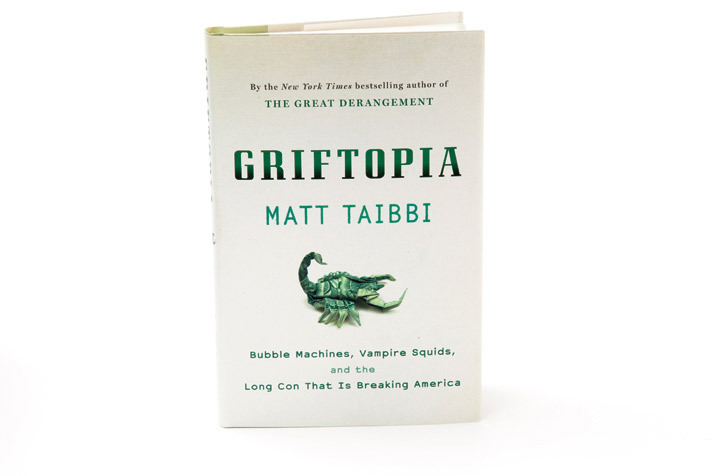
MATT TAIBBI, Griftopia (economics)
Idiot America (2009) by Charles Pierce. A long and appropriately malicious investigation into America’s hatred of experts and knowledge and its corresponding love affair with stupidity and cookery. A key text of the Tea Party era. Back to Our Future by David Sirota. This book isn’t out yet, but will be soon; I got a sneak peek at it and it’s hilarious. It’s a very funny book about how '80s pop culture and movies like Rambo and Top Gun laid the foundation for the future totalitarian state. The Victims Return by Stephen Cohen. There are a lot of gulag books, and I’ve probably read all of them (a psychiatrist could deduce plenty from the three main categories of books in my house: medical mysteries, psychotherapy case studies, and books about prison and prison escapes). This cool new book by an old friend gets into the lives of Soviet political zeks after they were released. The Art of the Heist (2009) by Myles Connor Jr. and Jenny Siler. This prison/crime memoir by a master art thief reminds me a lot of one of my favorite books, Papillon. Men with Balls (2008) by Drew Magary. Magary is the funniest sportswriter alive.

ANNE CARSON, Nox (poetry)
This was the year I finished Proust! Decided to read it in French, started in winter 2003, read it every morning with breakfast until last May, when I closed the final volume. Withdrawal is harsh, but those pages are worth it.
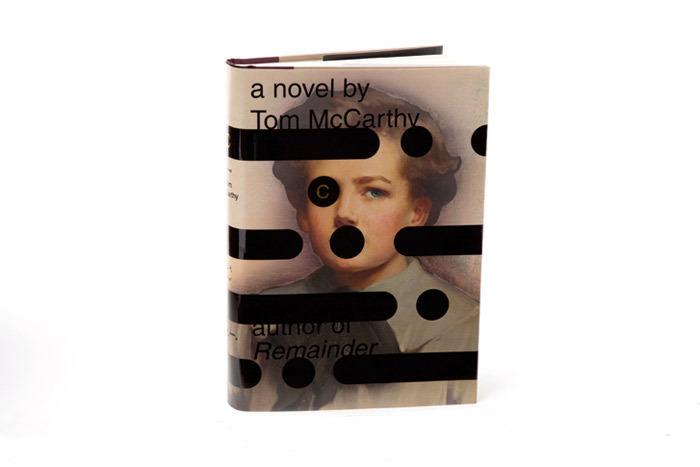
TOM MCCARTHY, C (novel)
Zeroville (2007) by Steve Erickson. A tattooed, skinhead Zelig type is seamlessly inserted into the history of ’70s cinema. What could have been academic ends up delirious and metaphysical. Robinson Crusoe (1719) by Daniel Defoe. It’s hardly new, but reading it this year I was amazed how totally modern it is. It’s all about capitalism, stock taking, and inventorizing, as well as a subjectivity that’s index-linked to these: like an exotic version of Perec’s Things. And I love how Crusoe’s obsession with his gunpowder supplies goes hand in hand with a parallel fixation on his store of that other dark material, ink—as though he’d intuited, like some proto-Burroughs, that writing and violence are two sides of the same coin. The Blofeld Trilogy (1961–64) by Ian Fleming. It’s total trash, but I can’t stop reading it. And sometimes he comes up with a line like this: "The operator played the dials with insect fingers, pausing, verifying, hastening on through the sound waves of the world." That's worthy of, well, me. The new Penguin Modern Classics edition has a good intro by Nicholas Lezard.
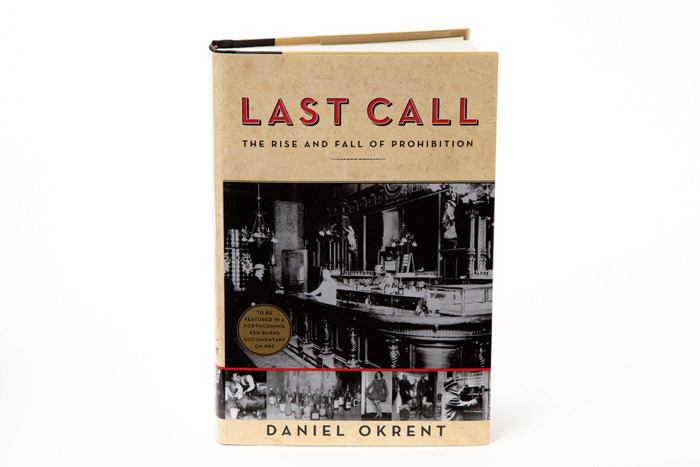
DANIEL OKRENT, Last Call: The Rise and Fall of Prohibition (history)
After a long nonfiction project, I generally reenter the real world through fiction. The outstanding novels I read this year were: A Visit from the Goon Squad by Jennifer Egan. It would be impossible for me to imagine a topic in which I'm less interested than the purported subject of this novel—namely, the pop-music business. But Egan's artful mastery of different narrative forms is so impressive and so gratifying I want to (and will) read her remarkable book over and over. Stoner by John Williams. This 1965 novel about a solitary academic in the first half of the last century is achingly sad, yet somehow at the same time inspiriting. I don't think I've ever encountered a novelist in such complete control of his voice, and consequently of his characters. Super Sad True Love Story by Gary Shteyngart. Not only does no one else write like Shteyngart, no one else would dare even try. Electric, preposterous, and hilarious, SSTLS is also boldly (and scarily) prophetic. And Freedom by Jonathan Franzen. Of course.
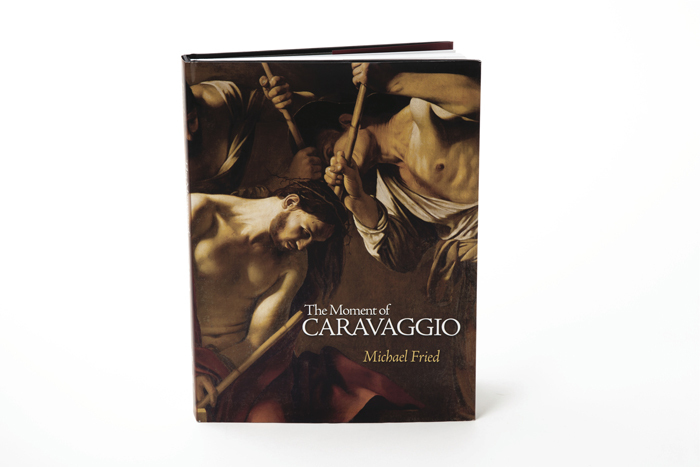
MICHAEL FRIED, The Moment of Caravaggio (art history)
True-Love: Essays on Poetry and Valuing (2009) by Allen Grossman. Stunning essays by the most profound poetic intelligence of our time. Try “The Passion of Laocoön” and you will see. (Let me also recommend Grossman’s most recent book of poems, Descartes’ Loneliness.) Summertime (2009) by J. M. Coetzee. A fictive investigation into the life of a writer named John Coetzee when he was in his thirties. Brilliant, lacerating sentences, seemingly so simple, come at you one after another right up to the end. I read it in one sitting and put it down shaken and exhilarated. Nietzsche, Psychology, and First Philosophy by Robert B. Pippin. A short book, originally lectures at the Collège de France, that manages a radical rethinking of Nietzsche’s self-understanding with great erudition, force, and lucidity. Little Did I Know: Excerpts from Memory by Stanley Cavell. A partial autobiography imagined and executed with all of Cavell’s characteristic amalgam of writerly originality and philosophical depth. It will be a long time before we take its measure. 89/90 by Michael Schmidt. A photobook published to coincide with Schmidt’s remarkable exhibition at the Haus der Kunst in Munich. Black-and-white photographs of Berlin from 1989-90 of the most utter nondescriptness, sequenced so as to evoke a kind of consummate musical perfection.
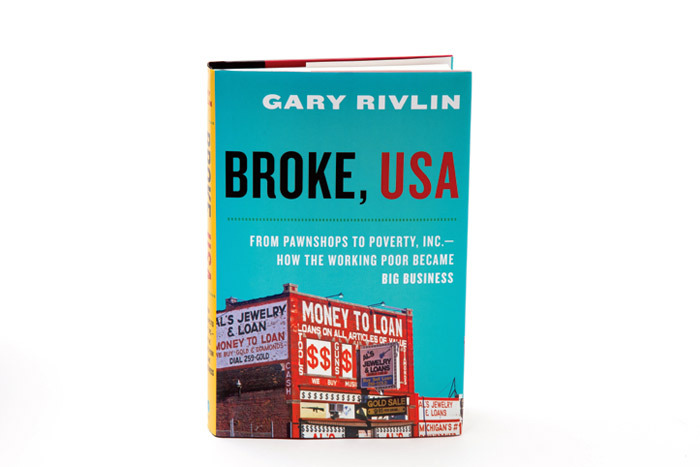
GARY RIVLIN, Broke, USA (economics)
For two decades, journalist Michael W. Hudson has been exposing the shadier side of the economic fringes, where the working poor and the financially unsophisticated represent a golden opportunity for the unscrupulous looking to make a buck. Hudson’s new book, The Monster: How a Gang of Predatory Lenders and Wall Street Bankers Fleeced America-and Spawned a Global Crisis, is a great read, which counts as its stars several of those who amassed great fortunes recklessly feeding the subprime machine, as well as former employees selling their souls in exchange for six-figure salaries. Hudson's work builds on the journalism of other favorite writers taking on this same topic, including Peter S. Goodman, author of Past Due, and Alyssa Katz, author of Our Lot: How Real Estate Came to Own Us. And for those who've had their fair share about the subprime mortgage fiasco, I'd recommend Hampton Sides's Hellhound on His Trial, the riveting tale of the manhunt for James Earl Ray.
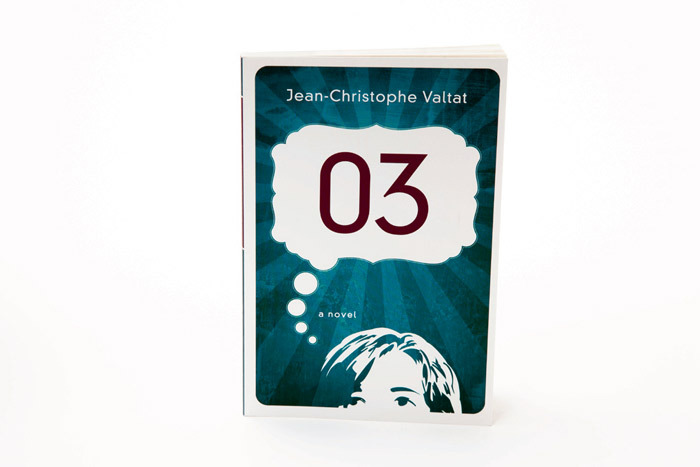
JEAN-CHRISTOPHE VALTAT, 03 (French novella)
I was especially struck by two books from the last century: Jim Dodge’s hard-boiled Bildungsroman Stone Junction and Mark Helprin’s tiffany theodicea Winter’s Tale. Both manage—by taking literally their daring and naive allegories (a diamond that makes people disappear, a supernatural white horse)—to create a world of wonder, loyalty, justice, and love at first sight, a world where the reader will wish he belonged, if only for a short while. Generally speaking, I like books that have no qualms blending acute observation and unfettered fantasy: Donald Antrim’s The Hundred Brothers or the recently translated Don Juan, His Own Version, by Peter Handke, come to mind in that respect. And of course, like everybody else, I was impressed by Roberto Bolano’s 2666—mostly for the herculean labor of love that consists in telling the story of each particular female victim.
MARTIN PARR, The Protest Box (photography)
Street Photography Now by Sophie Howarth and Stephen McLaren. This new survey of street photography brings what many thought was a tired genre of photography up to date. Truly International, it will become the new defining guide to street photography. Infidel by Tim Hetherington. This beautifully designed book takes us on an intimate journey that this British photographer had when he was embedded in Afghanistan with an American platoon for over a year. It is tough to make a book about war feel fresh and new, but Heterington’s closeness to his subject reveals a great deal. How Terry Likes His Coffee by Florian van Roekel. There is a great tradition of Dutch students self-publishing their books, and this gem—about office life—is a stellar example. A small edition of 500 and no major distribution means this book will sell out soon. Quatorze Juillet by Johan van der Keuken. These masterful photos were all taken on July 14, 1958, but the effect feels as fresh as the day they were shot on the streets of Paris. Coming up for Air by Stephen Gill. This persistent and brilliant British photographer pulls off another stunning volume, with its great design and hand painted cover. Shot in Japan, with many taken in aquariums he continues to develop the photographic language into his own.
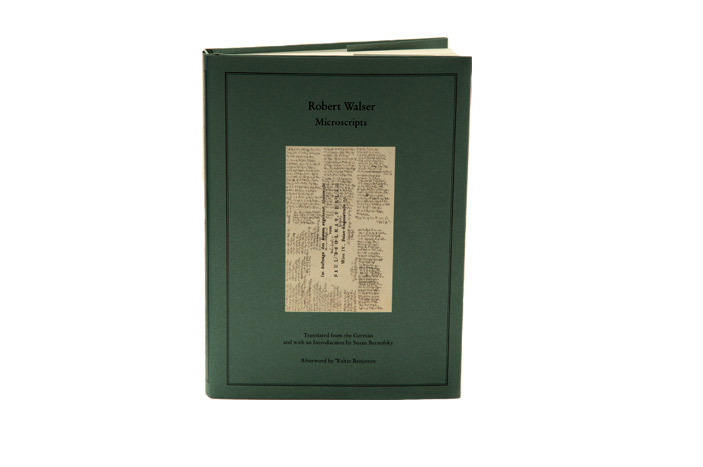
SUSAN BERNOFSKY, translator of Microscripts by Robert Walser (stories)
There Once Lived a Woman Who Tried to Kill Her Neighbor’s Baby (2009) by Ludmilla Petrushevskaya (translated by Keith Gessen and Anna Summers). A book of uncanny fairy tales for a modern-day Russia that have a creepily-otherworldly-meets-just-next-door quality. Love and Obstacles (2009) by Aleksandar Hemon. Devastatingly funny, sharply observed stories of the Bosnian immigrant experience (it’s black humor, of course). The Possessed by Elif Batuman. Until you read this book, you will have no idea how much more you truly needed to know about Dostoevsky, Babel and Tolstoy. Batuman is a gifted comic storyteller. The City and the Mountains (1901) by Eça de Queirós (translated by Margaret Jull Costa). A luminously described tale of a man searching for happiness somewhere between the nineteenth-century Portuguese countryside and the luxuries of Paris. And How, a brilliant poetry debut by Emily Pettit. One of the most ingenious how-to books ever written.
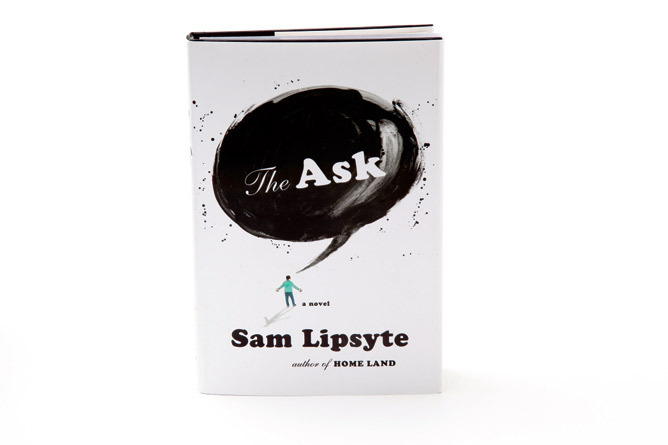
SAM LIPSYTE, The Ask (novel)
Here are some books I read this year that induced the right kind of cleansing derangement, in order of publication: One D.O.A., One on the Way by Mary Robison. This book was published in 2009 but it feels like it could have been written today (I'm only half-kidding). Set among ruined people in ruined city, brimming with horror and comedy and honest human yearning, this novel is Robison at her best. Collected Fictions by Gordon Lish. His enormous importance, as an editor and teacher, to the story of twentieth-century American fiction is now, finally, not in dispute. But I guess some more people will have to die before there can be a full reckoning with the power of these pieces. Four Fish by Paul Greenberg. I haven't read too many books about fish, but I can't imagine this isn't one of the best. Moby-Dick is about a mammal and The Old Man and the Sea gives the fish short shrift in the title. The Dr. J-starring movie The Fish That Saved Pittsburgh wasn't even about our relationship to the ocean or the decline of various aquatic stocks. But Greenberg's book is, and besides being incredibly informative, it contains some truly lovely writing, so rare in certain kinds of non-fiction these days. The Flame Alphabet by Ben Marcus. This will be out in 2011. I don't want to say that much about it. It's too soon. But it has all the amazements we expect from Marcus in his construction of sentences and ideas, and then worlds more, all powered by a fantastic narrative. It's a major book.
A shorter version of this column appeared in the print edition of Bookforum.

